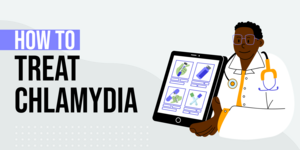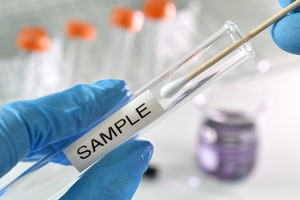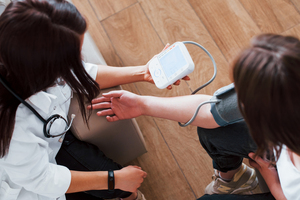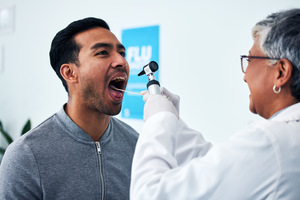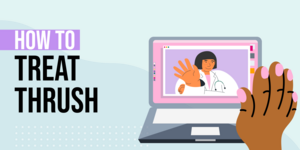HIV Testing near me
Own a clinic? Add your location.
Help patients book appointments with you on Solv. It's free!
13 instant-book locations

Quest Diagnostics
Quest Diagnostics
Self-pay pricing
Clear self-pay prices
No more surprise bills. Solv is committed to making getting healthcare as easy as buying groceries at the store, including knowing the price of care upfront.

Labcorp, Columbus
Labcorp




Quest Diagnostics
Quest Diagnostics
Self-pay pricing
Clear self-pay prices
No more surprise bills. Solv is committed to making getting healthcare as easy as buying groceries at the store, including knowing the price of care upfront.

Quest Diagnostics
Quest Diagnostics
Self-pay pricing
Clear self-pay prices
No more surprise bills. Solv is committed to making getting healthcare as easy as buying groceries at the store, including knowing the price of care upfront.






Abbott Nutrition A Division of Abbott Laboratories
Abbott Nutrition A Division of Abbott Laboratories
OhioHealth Urgent Care, Grandview
OhioHealth Urgent Care

Urgent Care 24/7, Columbus
Urgent Care 24/7
Fastest Labs, Columbus
Fastest Labs
Ohio Health Laboratory Services
Ohio Health Laboratory Services
Own a clinic? Add your location.
Help patients book appointments with you on Solv. It's free!
About HIV Testing
More than a million people in the United States are infected with HIV. It’s possible to have HIV and not know it. In fact, about 13 percent of people infected with HIV are unaware they have it. If you have HIV and don’t know it, you risk passing it to others. Getting tested will allow you to take steps to prevent spreading the infection if you test positive.
HIV affects some parts of the population more than others, including racial minorities and gay men. HIV is also more common in the South.
There is no cure for HIV, but it can be managed with medication that slows down the progression of the virus in the body. The medication must be taken daily for it to be effective.
If left untreated, HIV can lead to severe complications, so it’s important to get tested and treated if you believe you are at risk. HIV attacks the immune system and can make you more susceptible to other illnesses, including life-threatening diseases such as cancer [5].
You should get tested for HIV if you have had unprotected sex with a new partner, have multiple sexual partners, have had sexual contact with an infected partner, or have used intravenous drugs. Sharing needles with an HIV-infected person is one of the main causes of HIV infection.
While the CDC recommends that everyone gets tested for HIV at least once, not everyone who is sexually active needs to be tested regularly. If you have a higher risk of HIV infection, you should get tested at least once a year. Sexually active gay or bisexual men have a higher risk of infection and should get tested every 3-6 months. HIV testing is quick, painless, and often free.
HIV Test FAQs
Who should get an HIV test?
Everyone between the ages of 13 and 64 should get an HIV test at least once in their life. Some people have a higher risk of HIV infection and should be tested more often. This includes sexually active gay men, those who have had sex with a partner who is HIV positive, those who inject drugs, or those who have unprotected sex. If these risk factors apply to you, you may want to get tested every 6-12 months.
How do they test for HIV?
HIV tests look for antibodies that your body has produced in response to the virus. This can be done with a blood test or by using a sample of cells taken from the inside of the cheek. The sample is then sent to a laboratory, where a technician will examine it for the presence of antibodies.
How long should I wait to get an HIV test?
If you become infected with HIV, it can take a while for your body to produce enough antibodies for a test to diagnose the infection. It may take 3-12 weeks for enough antibodies to be present in your blood. You could get a negative test result during this period even if you have HIV.
How long will I have to wait for HIV test results?
Because the sample needs to be sent to a laboratory for examination, most HIV test results can take between a few days and several weeks. However, some clinics or doctor’s offices may offer rapid HIV tests, which can deliver a diagnosis in 20 minutes. Rapid HIV tests use a small sample of blood or fluid collected from the mouth. If you have a positive result from a rapid test, you will need a follow-up blood test to confirm the diagnosis.
How much does an HIV test cost?
The cost for an HIV test will depend on several factors, including the type of test you receive, where you get tested, and whether you have health insurance. Some clinics or health departments may offer free or low-cost HIV tests. If you’re a college student, your school may offer free HIV tests.
Is HIV testing covered by my insurance?
Most insurance plans cover HIV testing. Because of the Affordable Care Act, most new insurance plans must cover HIV testing for anyone between the ages of 15 to 65, with no copay. If you have questions about what’s covered under your specific health plan, you can always call your insurance company or check their website.
Where can I get an HIV test?
HIV testing is available at doctor’s offices, the health department, and many health clinics. Additionally, some pharmacies with in-house clinics may offer HIV testing. Even though some clinics may offer walk-in appointments, making an appointment in advance will reduce your wait time and ensure that you can get your test the same day.
Can I get a same-day appointment for HIV testing?
Yes, same-day and next-day appointments for HIV testing can easily be booked through Solv. We partner with thousands of healthcare providers nationwide to make it easy for everyone to access the medical care they need quickly and conveniently. Search our website for a provider near you and instantly make an appointment online.
How can I book an HIV test on Solv?
In the search box on our website, simply enter “HIV test” and your location. The next page will show you a list of providers and their available appointment times. Select a time and location that are convenient for you, and enter your information to book your appointment. Be sure to include “HIV testing” as the reason for your visit.
Can I test myself for HIV at home?
Some home HIV tests are available, but not all are reliable or even approved by the FDA. A home test will require you to take a swab from the inside of your mouth or take a blood sample using a finger pricker. If you receive a positive result from a home HIV test, you should follow up with a doctor to confirm the diagnosis and get treated.

Updated on Dec 25, 2025
Solv has strict sourcing guidelines and relies on peer-reviewed studies, academic research institutions, and medical associations. We avoid using tertiary references.
Related Searches
Sports Physicals
STD Testing
Strep Test
Allergy Testing
TB Test
Pediatric Urgent Care
COVID-19 Testing
COVID-19 Pill
Blood Test
Cholesterol Test
CMP Test
Glucose Test
Hepatitis test
Retail Clinic
A1C Test
Mono Test
RSV Test
Vitamin D Test
Urinalysis
Drug Test
Basic Metabolic Panel
Diabetes Test
Diagnostic Test
Pulmonary Function Test
DNA Test
H Pylori Test
Flu Test
Cigna Urgent Care
Blue Cross Blue Shield Urgent Care
Thyroid Test
Ear Wax Removal
Pregnancy Test
Urgent Care
DOT Exam
United Health Urgent Care
Lab Tests
Dermatologists
Aetna Urgent Care
Aetna Urgent Care
Blue Cross Blue Shield Urgent Care
Cigna Urgent Care
COVID-19
Flu
United Health Urgent Care
» All servicesEveryday Healthcare, Simplified
Expert advice to help you live your best life
